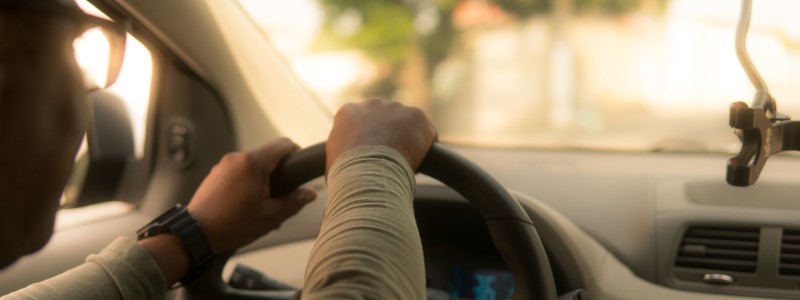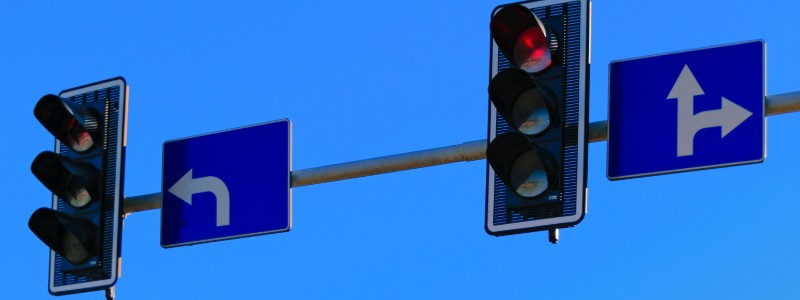6 Reasons Why Your Car Insurance Won’t Protect You After an Accident
Drivers in Indiana are required by law to have an active car insurance policy, but that doesn’t mean that every driver is following the law. Nor does it mean that your car insurance is enough to protect you, and any friends or family who may have been in your car during an accident. Your choice […]

August 24, 2020

Drivers in Indiana are required by law to have an active car insurance policy, but that doesn’t mean that every driver is following the law. Nor does it mean that your car insurance is enough to protect you, and any friends or family who may have been in your car during an accident.
Your choice of insurance company is less important than your actual policy. Some are easier to deal with after an accident than others, but the important thing is that you have enough coverage to protect you should the worst happen. Unfortunately if you don’t have enough coverage, you may end up losing more than just money.
Here are 7 reasons why you need to update your car insurance policy..
1. State minimums are not enough.
Drivers are only required to have minimum coverage, but the bare minimum may not be enough. Indiana car insurance minimums are:
- Bodily injury liability: $25,000 per person and $50,000 per accident
- Property damage liability: $25,000 per accident
Liability coverage protects you if you ever cause a car accident. When someone else crashes into you, their liability coverage pays for your damages.
These are called “minimums” for a reason. $25,000 doesn’t go very far if you have severe injuries, need to miss work, or if you have to replace your vehicle, and if you need to pay attorney fees.
In my experience, a large majority of drivers in Indiana only have the minimums. In some unfortunate cases clients are not able to recoup for the full damages for their accident because the at-fault driver simply doesn’t have enough liability coverage.
I know that paying more a month for coverage that you may not need can be annoying. But it is better to pay a little more now and have excellent coverage, than to not have the coverage when you desperately need it.
2. You can’t trust other drivers to have coverage.

Nearly 13 percent of drivers don’t have car insurance, even though it is required by law. You can’t trust the drivers around you to have enough coverage: you must rely on yourself.
Uninsured and underinsured motorist coverage does protect you in the event that you are hit by a driver who doesn’t have insurance. These minimums must be included in every Indiana auto insurance policy unless rejected in writing:
- Uninsured bodily injury: $25,000 per person and $50,000 per accident
- Uninsured property damage: $10,000 per accident
- Underinsured bodily injury: $50,000 per accident
If you are struck by a driver who is uninsured, uninsured motorist coverage pays for your damages. If you are hit by someone who has less coverage than you, underinsured motorist coverage pays for the difference between their coverage and yours. Make sure that your auto policy includes uninsured/underinsured motorist coverage and that you haven’t accidentally refused coverage.
3. You could lose more than just money.
If you don’t have enough coverage, a car accident can have long-lasting financial consequences. Your wages, which may have already taken a hit because of your time in recovery, may not be enough to cover your bills. Your credit score may suffer. You may even have to file for bankruptcy.
If you file for bankruptcy you could lose valuable assets like:
- Rental properties
- Boats
- RVs and recreational vehicles
- Home equity
This is what you can lose just because you did not have a strong enough policy in place.
4. You should consider medical payments coverage.
 Medical payments coverage pays for medical bills regardless of fault. If you are at fault for a collision, your own insurance needs to be enough to cover everything, including medical bills. Med pay can help with that. If the at-fault driver is disputing fault and delaying the settlement process, then med pay can cover your medical bills while you wait for your settlement.
Medical payments coverage pays for medical bills regardless of fault. If you are at fault for a collision, your own insurance needs to be enough to cover everything, including medical bills. Med pay can help with that. If the at-fault driver is disputing fault and delaying the settlement process, then med pay can cover your medical bills while you wait for your settlement.
Med pay also covers anyone who was in your vehicle. Like we said before, state minimums may not be enough if multiple people in your vehicle suffered catastrophic injuries. You can have any amount of med pay coverage that you want, though a higher amount is better if you have high deductible health insurance or if your healthcare provider’s billing department is difficult to deal with.
Your med pay follows you. If you are a passenger in your friend’s car and they hit someone, your med pay will still help you. If you are often in another person’s vehicle for work or carpooling, it’s worth considering med pay coverage.
5. Umbrella policies may not include uninsured or underinsured motorist coverage.
An umbrella policy is extra liability coverage that covers you when you exhaust your personal liability coverage and they’re usually purchased by people who own a lot of expensive assets or have a high risk of being sued. You can only get an umbrella policy if you already have an existing auto or home insurance policy.
Umbrella policies offer a lot of bang for their buck, but you’ll want to check the fine print. More and more we’ve seen umbrella policies that do not include uninsured/underinsured motorist coverage, which means they will not help you if you are in an accident with an uninsured driver. Umbrella policies may be cheap for the extra protection, but if you’re missing uninsured or underinsured motorist coverage then you could end up paying more in the long run.
6. Someone else may own the car.

If you drive someone else’s car, understand that the car owner’s policy is essentially your policy. If they don’t have insurance then you don’t either. Namely, if you’re driving a company car, make sure you are familiar with your company’s auto insurance policy. This is especially important if you drive the company car on your own time. Increase coverage if necessary.
Your own auto insurance can still help you if you cause an accident while driving someone else’s car. Medical payments coverage will help pay for your medical bills, and your liability coverage will go towards paying damages for the other driver if you are at fault.
Help from an Indiana Car Accident Attorney
Get familiar with your policy and make sure that you have enough coverage to protect you in case the worst happens. If you wait until a car accident to see how much coverage you have, then it may be too late.
A car accident can happen to anyone at any time. If you have the misfortune of being injured in a collision that isn’t your fault, a personal injury lawyer can help. Your attorney will handle the ins and outs of insurance and negotiate a fair settlement on your behalf, so you can focus on recovery.
To learn more about filing a claim and recovering damages after a serious car accident, download a free copy of our ebook, Consumer’s Guide for Injured Victims. Hensley Legal Group is here for you. Please call us or contact us online for a free consultation about your Indiana car accident.
Available 24/7
Free Case Review
You won’t pay any fees until we win your case.
It’s easy - you can: